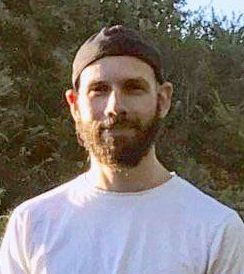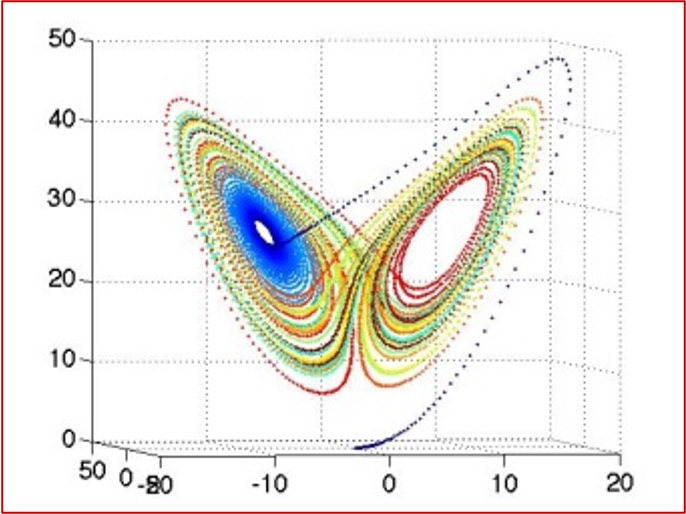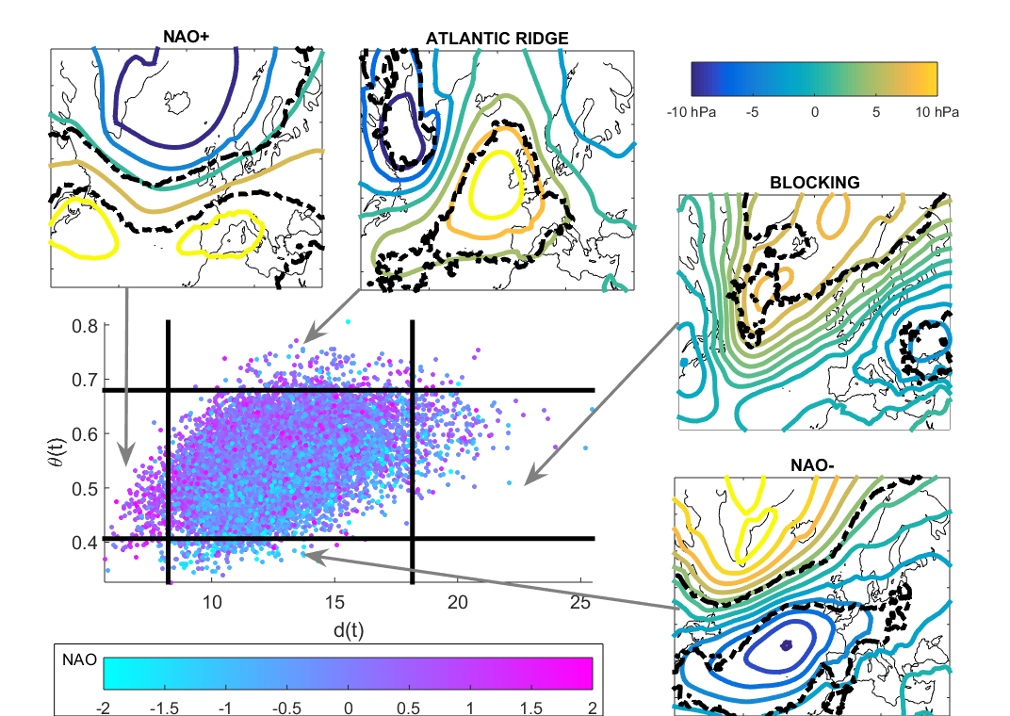 | The course will be held by professor Davide Faranda (Laboratoire de Science du Climat et de l’Environnement (LSCE), CNRS). |
 |  |
Abstract: This 6-hour course introduces advanced concepts and tools at the interface of dynamical systems theory and artificial intelligence, designed for Master’s students in physics, mathematics, geophysics or complex systems. Emphasis is placed on methods that enhance the interpretability of complex, high-dimensional dynamics through both theoretical and applied lenses.
The first part focuses on recurrence-based techniques to analyze the structure of trajectories in phase space. Students will explore recurrence plots and recurrence quantification analysis (RQA), learning how to extract insights about stability, dimensionality, and transitions in dynamical systems.
The second part introduces state-dependent dynamical indicators, including local measures of predictability, divergence rates, and degrees of instability. These indicators allow a refined, time-resolved characterization of evolving systems. Selected machine learning techniques — with a focus on linear discriminant analysis (LDA) — are presented to complement and enhance the interpretability of dynamical diagnostics.
The third part applies these methods to real-world examples from climate science (e.g., extreme events and regime shifts), epidemiology (e.g., outbreak dynamics and critical transitions), and earthquake systems (e.g., foreshocks and spatiotemporal clustering). These examples highlight the interdisciplinary power of dynamical systems and AI-based approaches for making sense of complex natural and societal phenomena.
The course combines conceptual lectures with guided exercises and discussions to promote active engagement and cross-domain understanding.
Le lezioni si terranno con il seguente orario:
Venerdi 27 Giu, 15:00-17:00 in Aula O1. (polo Fibonacci)
Lunedi 30 Giu, 17:00-19:00 in Sala Riunoni. (DM)
Ven 4 Lug alle 15:00-17:00 in Sala Riunoni. (DM)
